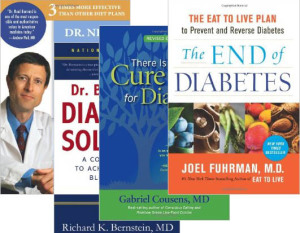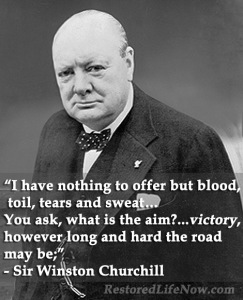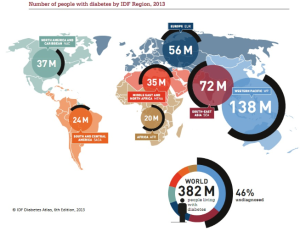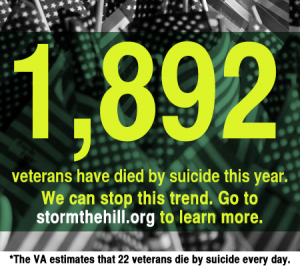 Is it really possible to defeat diabetes (especially Type 2)? If so, how?
Is it really possible to defeat diabetes (especially Type 2)? If so, how?
There are many books and blogs that tell us that Type 2 diabetes results primarily from life style choices. Many go on to say, “Eat right and exercise”. Great advice! But exactly how do I do that?
A quick search will result dozens of different proposed ways to “Eat right”. Many claim that the science is on their side. Here is just a few of the more well know programs:
- Meat centered, high protein, ultra-low carbohydrate: Dr. Bernstein’s Diabetes Solution: The Complete Guide to Achieving Normal Blood Sugars (I tried this approach without success. I do not recommend this approach due to the low micronutrient content, high use of processed food, and high saturated fat content of the diet.)
- Vegan, mostly raw food, moderately low carbohydrate: 21-Day+ Holistic Recovery Program – Dr. Gabriel Cousens There Is a Cure for Diabetes, Revised Edition: The 21-Day+ Holistic Recovery Program (This approach provided excellent and rapid results to start my recovery. However, the book is long, filled with a lot of details and the program is not outlined very well. I recommend started with Dr. Fuhrman’s book.)
- Nutritarian, all or mostly plant based, moderately low carbohydrate– Dr. Joel Fuhrman The End of Diabetes: The Eat to Live Plan to Prevent and Reverse Diabetes (An excellent starting point. Just the right amount of information and a solid starting plan. I needed something a little more rigorous to deal with some the the difficulties I was facing. But this is the book that I recommend people read first.)
- Vegan, higher complex carbohydrate: Dr. Neal Barnard Dr. Neal Barnard’s Program for Reversing Diabetes: The Scientifically Proven System for Reversing Diabetes without Drugs (His reported success is not as good as Dr. Cousens. However, many have found success with this method.)
What are we mere humans to make of all this? The amount of information can be overwhelming. It can also make it easy to find new excuses to not take action.
At times, I have longed for a quick and easy fix to the problem. I did not care if it was medicine, herbs, or powders as long as it was quick and easy.
Dr. X says, “Eat mostly meat.” Dr. Y says, “Do not eat any meat.” They are both standing on well-established science and clinical experience. Yet they draw such vastly different conclusions.
Some scientific claims are misleading. Some science is truly junk science—not really science at all. To make things even more complicated, different groups or individuals have overt or hidden agendas.
In the Defeating Diabetes blog and podcast, we will explore these topics. But more importantly, we will work together to find solutions. It may not be a quick and easy process. Together we can accomplish great things. I am convinced that there are solutions! (See the blog post “Defeating Diabetes: The Journey Begins” to read more of my story).
Each books mentioned above, have value. I recommend that you start with Dr. Joel Furhamn’s book The End of Diabetes: The Eat to Live Plan to Prevent and Reverse Diabetes*. It can help get you started in the right direction.
Question for discussion: What are some of the craziest, most outlandish, fad diets you or a friend have tried?
*This is my Amazon affiliate link. Using this link will help support RestoredLifeNow.com.







